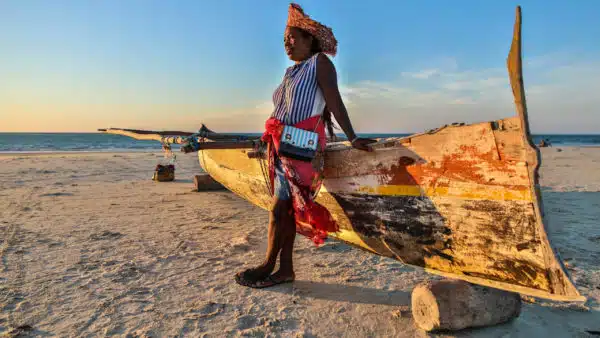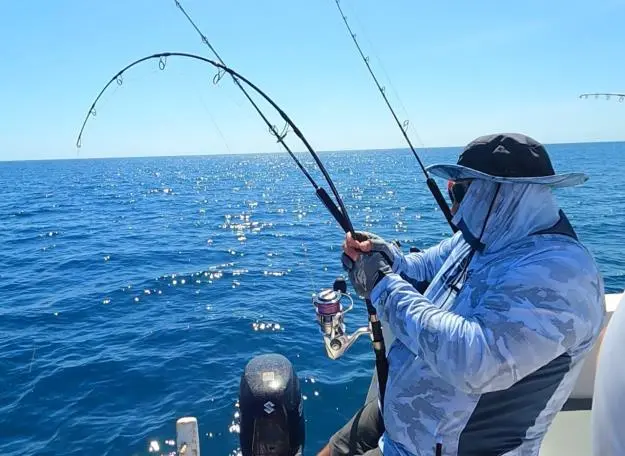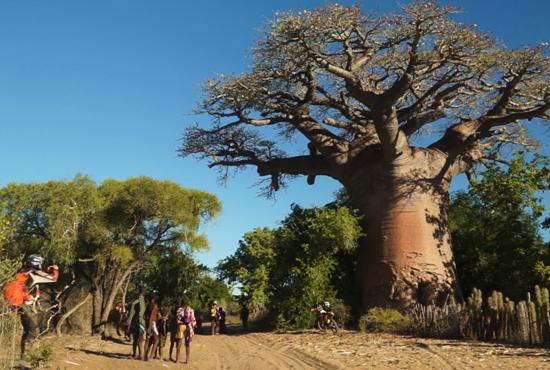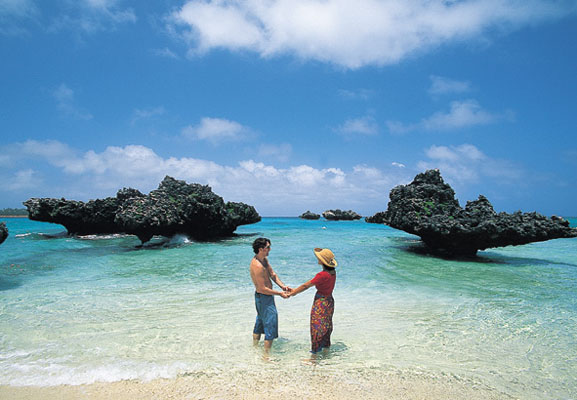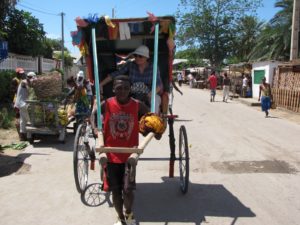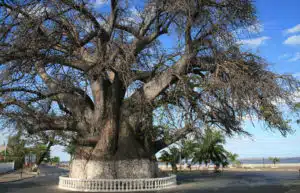The Uncertainty in Madagascar
Just skimming through the advice from the Foreign Office about Madagascar for 5 minutes is enough to notice that the same topic keeps coming up, namely safety.

I let myself be carried away by rumors, analyzing and researching violent stories that hide fear and terror. A lot has changed in the past 20 years, as is normal, the population density had changed in the meantime.
Fast verdoppelt und die Armut hatte sich vergrößert.
But the “I came, I saw, I conquered” of all the great survivors of a stay in Madagascar makes me laugh. Almost as much as the great defenders of the island who vehemently deny all accusations: The insecurity in Madagascar is a bit like everywhere and much less than in Europe. Of course, we all know to what extent thieves, scammers wreak havoc in Europe, just like the Dahalo (cattle thieves) here.
Therefore, I consider it essential to distinguish between psychosis, caution, and unconsciousness.
Given the low level of knowledge of a country, preconceived opinions are very widespread.
Widely spread. Many use the few pieces of information gathered on this topic to make generalizations. This also applies to the Foreign Office.
One thing is certain, imagination runs wild in the face of the unknown, and generalization comes too easily.
But specifically: Madagascar and safety, what about it?
According to the Quai d’Orsay map, Madagascar is by no means the most worrying country, but the country is not approaching the completely green area either. It is a matter of “appropriate vigilance”, which means “not entirely risk-free, but not against.
When it comes to tourism, Madagascar is often overlooked due to safety concerns. However, it is important to note that the usual precautions that apply in Paris, Berlin, and Zurich are also sufficient in Madagascar.
So yes, it is obvious that Madagascar is not a safety model. But we must put things into context. The country is affected by poverty, corruption, and unstable politics. I will try to describe the various risk factors below.
What some see as insecurity, others see as survival.
What kind of insecurity should we expect?
NATURAL RISKS: LOW
From December to April, Madagascar is in the middle of hurricane season. Cyclones mainly affect the coasts and can be very intense.
Strong winds and heavy rainfall can cause flooding in Madagascar. When a cyclone approaches, air travel may be disrupted and roads may be damaged after the cyclone passes.
Kidnapping and Terrorism: Low Risk
There are no reported cases of tourists being kidnapped in Madagascar.
Madagascar is not a target for terrorist attacks.
Theft Risk in Urban Areas: Moderate
Petty crime and pickpocketing are common in some neighborhoods of Antananarivo, but less frequent in rural areas.
Avoid carrying valuables outside and be cautious when taking out phones or cameras (if in a group, have someone keep watch). Backpacks are easy targets for thieves.
When it comes to handbags, choose ones with straps that can be worn across the body. Be cautious with easily accessible bags as pickpockets are very clever and you won’t even feel a thing!
Once night falls, avoid walking and use your own car or a taxi instead.
THEFT RISK IN RURAL AREAS: LOW
Petty crime and pickpocketing are much rarer than in the city, but not completely nonexistent.
Avoid camping in the wild without supervision.
STREET SAFETY RISK: LOW WITH DRIVER, MEDIUM WITH PUBLIC TRANSPORT
In city traffic, the risks are mainly related to pickpocketing. It is not advisable to carry valuables or use your phone with the window open or.
When traveling in Madagascar, it is important to be cautious and avoid driving alone at night, especially outside of the city. While most roads are relatively safe, there are some areas in the south where road bandits, known as Dahalos, may pose a threat at night. It is rare for these attacks to occur, but it is still important to take precautions.
It is recommended to wait until daylight to resume your journey or to join caravans of other travelers for safety. Remember to always lock your doors when driving in unfamiliar areas.
Groups on the move. Drivers know the vulnerable places and will inform you about the necessary precautions.
The biggest risks on the road occur mainly during trips with bush taxis. Between bad roads, poorly maintained and overloaded vehicles, tired drivers, and dangerous driving, accidents are not uncommon. In my opinion, they are the biggest danger for the few tourists who prefer such a cheap option.
FRAUD: LOW
As with any country suffering from poverty, sometimes any means are good to scrape together a little more money.
For foreign exchange, you should use your hotel, exchange offices, or banks. In all When going on excursions (taxi, sightseeing, etc…), it is important to clarify prices from the beginning. Avoid exchanging money with money changers at the airport, and do not leave your luggage with baggage handlers at the airport without proper uniform. Security issues may seem daunting to list in this way, but once the information is shared, the risks can be easily avoided with appropriate behavior. It is important to be aware that a country suffering from poverty may not have the same level of security as a western country. The rules to follow are simple and not binding in order to fully enjoy the journey. Madagascar is a beautiful and complex country, and all you need to do is use your common sense to discover it safely.
My experience since 2001:
In almost 20 years, it has only happened once to me and my guests that a bag with a camera lens was stolen through an open window in the hotel. That was the only incident, and the guest was compensated by the hotel owner in a generous manner.
The little tricks:
– Make photocopies and scan all important documents (passport, insurance…). Be However, be careful, as the police regularly check the papers of foreigners (especially at night). A simple photocopy is not sufficient. If you want to securely store your papers in the safe of your hotel, you can have the photocopy of your passport and visa legalized. The legalization process takes place at the Fokotany (equivalent to a town hall).
– Take a bag that you can discreetly wear under your clothes and avoid depositing all your money in one place.
What to do in case of an attack?
– It is best to leave it to them, as attackers usually only resort to. Violence when the victim retaliates.
– Visit a police station and inform the consulate or embassy with the loss report.

